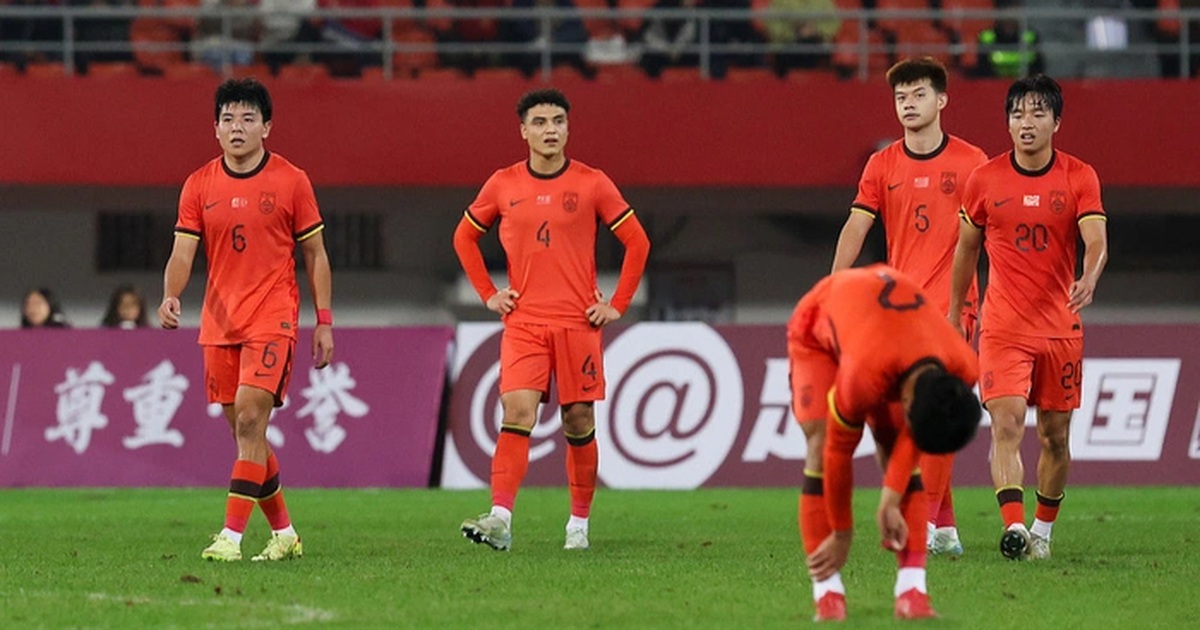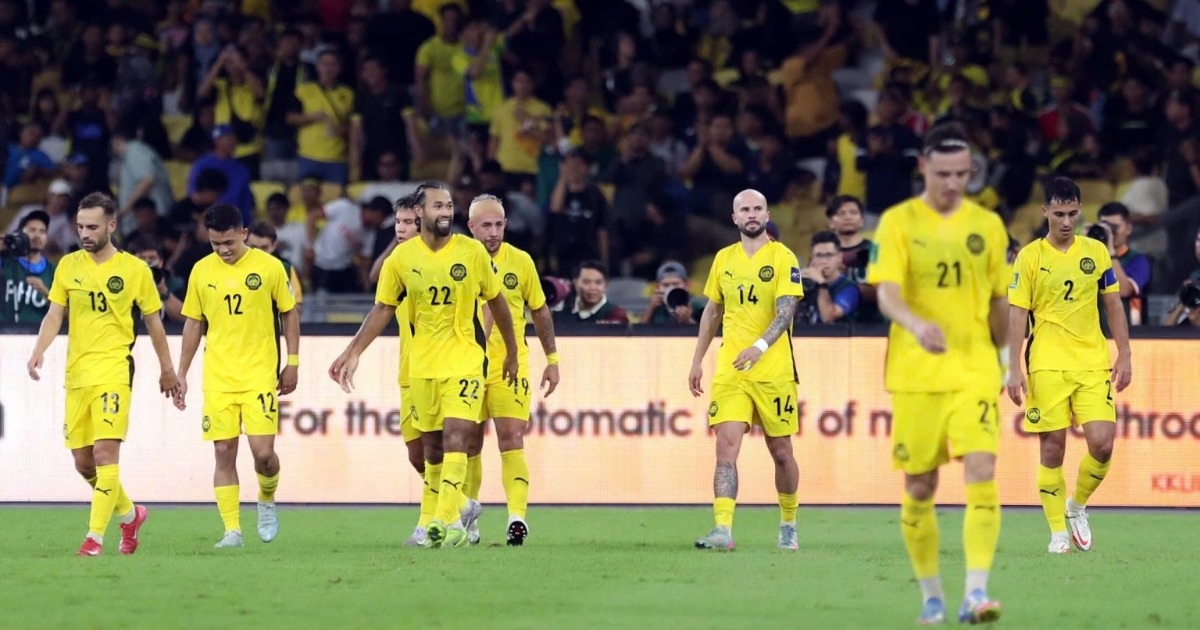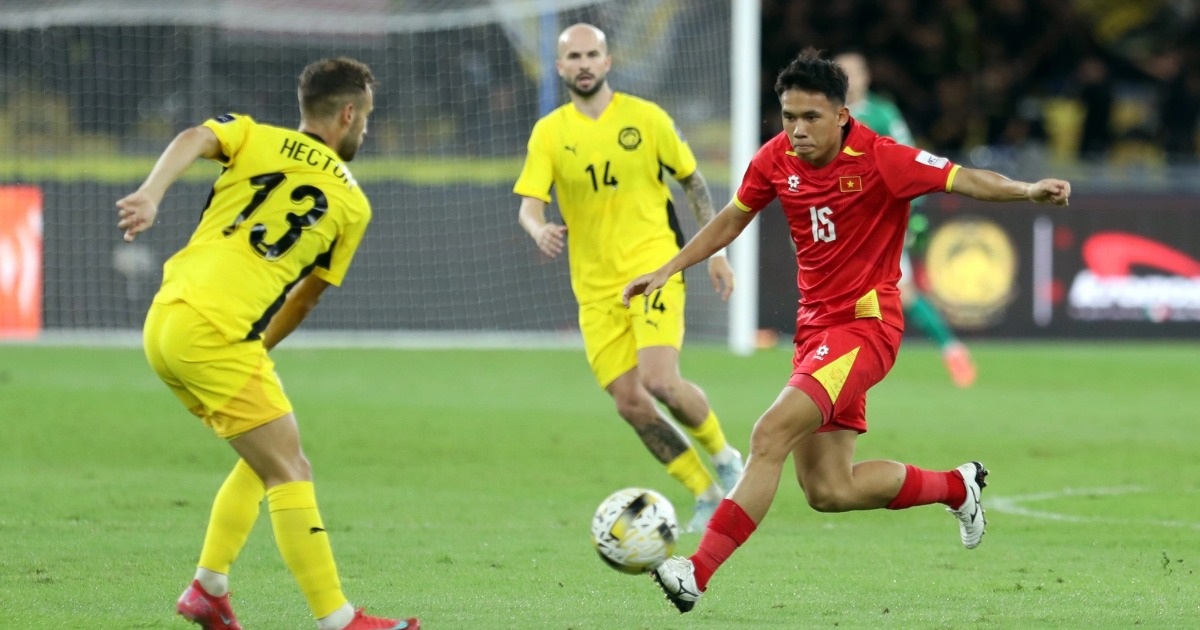The first round of the 2025 Panda Cup concluded with a major upset, as China U22 lost to Vietnam U22 on home turf in Chengdu. This match not only disappointed Chinese fans but also sparked considerable debate about the performance of the nation’s young players.
China U22 starting lineup in their 0-1 loss to Vietnam U22 (Photo: Sina).
Sina newspaper noted that Vietnam U22 has become a formidable opponent for China U22, as the youth team from the billion-person nation has not won in their last four encounters: “In the opening match, China U22 endured a tense 90 minutes against Vietnam U22. Coach Zheng Wei’s team suffered a 0-1 defeat, with the decisive goal coming in the 81st minute. This marks the fourth consecutive match where China has failed to beat Vietnam (2 draws, 2 losses), demonstrating that the Southeast Asian representative is becoming a significant challenge at the youth level. The match was directly observed by the new head coach of the Chinese national team, Shao Jiayi, and his staff. However, the performance of the U22 players left him unsatisfied.”
Sina also pointed out two main reasons for the defeat: “Despite lacking several key players like Wang Yudong and Kuai Jiwen, China U22 still showed good ball possession, dominating over 50% of control and taking six shots, one more than their opponent. However, poor finishing ability and an unfocused defense cost the home team dearly. According to experts, the two primary causes of the failure were the attacking line’s wasted opportunities and individual errors in defense.”
Liu Haofan (number 5) was heavily criticized; he is also the captain of China U22 (Photo: Sina).
Based on the reasons for the defeat, Chinese media highlighted three players who performed poorly and may be excluded from future national team call-ups by Coach Shao Jiayi:
“Forward Abuduwaili Baihelamu was the first to be criticized for missing two clear-cut chances in the 28th and 51st minutes, despite being in favorable positions. Once again, Baihelamu demonstrated that he only performs well against weaker opponents and often “disappears” when facing stronger teams. However, this was not surprising, as Baihelamu is clearly a player with “great awareness, but rudimentary technique.”
Left-back Wang Shiqin made a serious error in the situation that led to the conceded goal. As a defender, Wang Shiqin’s performance in this match was disastrous. In previous games, he had a history of scoring own goals. Although he didn’t directly score an own goal this time, it was effectively the same. Wang Shiqin has always been known for his powerful play, but in reality, he is somewhat reckless and lacks the necessary meticulousness.
Center-back Liu Haofan contributed to Wang Shiqin’s error in the conceded goal. That play was the result of a “collaboration” between the two players: first, Liu Haofan failed to stop the cross, and then Wang Shiqin essentially set up the opponent for a shot. Liu Haofan didn’t just make one mistake in this match. In the 85th minute, he pushed a Vietnam U22 player from behind inside the penalty area. Had the referee not been lenient, the Chinese team could have lost 0-2.”
In conclusion, Sina commented: “Despite the 0-1 defeat, Chinese experts believe this is a good opportunity for the China U22 coaching staff to identify weaknesses that need addressing, especially as this generation of players is expected to form the core of the national team in the future, aiming for the 2027 Asian Cup and 2030 World Cup. Coach Shao Jiayi is expected to conduct a serious review of the squad after the tournament to prepare for the long-term campaign.”



